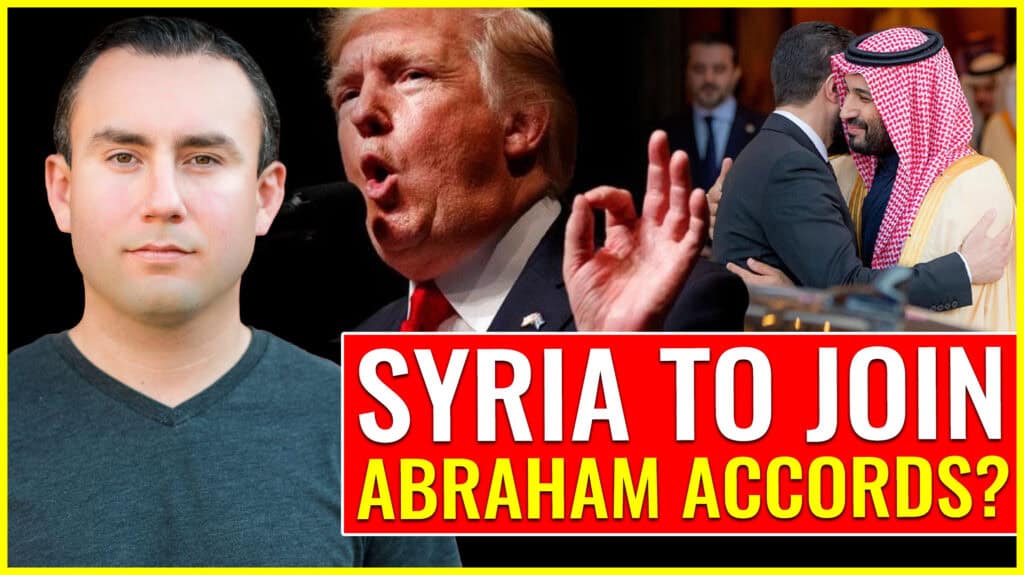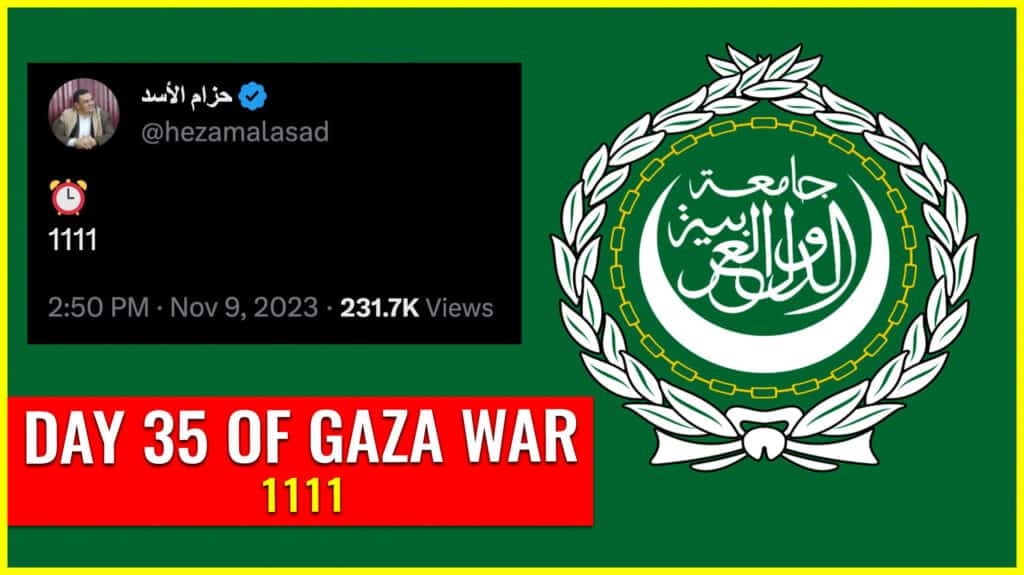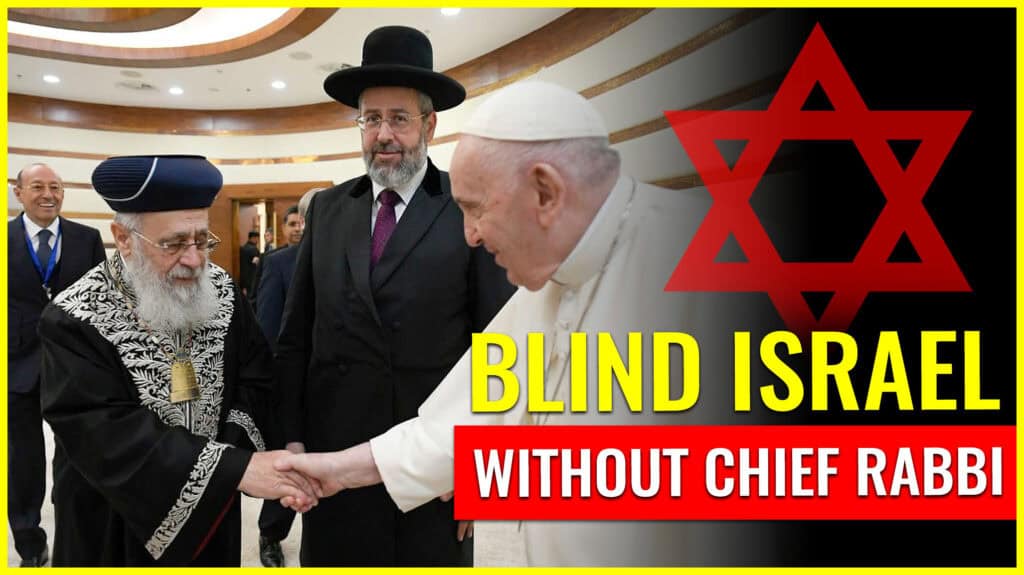PODCAST FOR THIS EPISODE:
Scripture to consider before the news:
“And there was given me a reed like unto a rod: and the angel stood, saying, Rise, and measure the temple of God, and the altar, and them that worship therein. But the court which is without the temple leave out, and measure it not; for it is given unto the Gentiles: and the holy city shall they tread under foot forty and two months.”
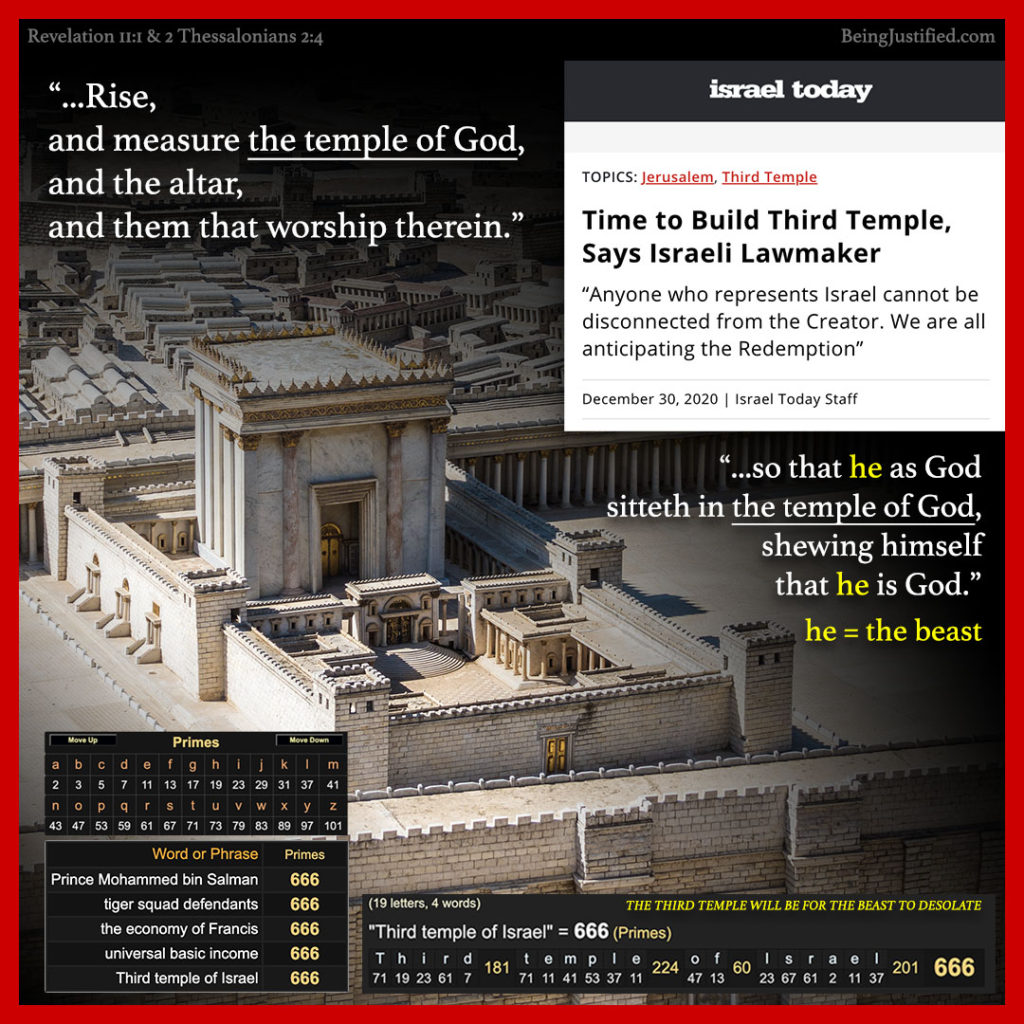
As we proceed unto the final prophetic 70th week for Israel, the Jews will get access to the temple mount to build their third Jewish temple which the beast will desolate in the middle of the week.
We are just seeing more developments in the lead up to that right now.
Now unto the news:
Israel quietly letting Jews pray on Temple Mount, in break with status quo.
Israel has quietly started allowing Jewish prayers on the Temple Mount in recent months, in what would appear to be a major change to the status quo that has existed at the holy site since the Jewish state captured the Old City of Jerusalem from Jordan during 1967’s Six Day War, according to a report Saturday.
Channel 12’s religious affairs reporter Yair Cherki filmed prayers at the site in recent days, as policemen — who in the past would eject any person suspected of prayer, and sometimes kicked people out for merely citing a biblical verse while speaking — passively looked on.
“For months now, every morning this unofficial prayer quorum has been praying on the Temple Mount,” Cherki said. The worshipers gather without prayer books, tefillin or any other symbols of prayer that could draw unwanted attention from Muslims at the compound that houses the Al-Aqsa Mosque.
But pray they do, with the cops turning a blind eye. The Islamic Waqf, which administers the compound, is aware of the situation and monitors them from a distance, but has so far not taken action, according to the report.
But pray they do, with the cops turning a blind eye. The Islamic Waqf, which administers the compound, is aware of the situation and monitors them from a distance, but has so far not taken action, according to the report.
Cherki described the developments as “a revolution, unfolding quietly and gradually under the radar.”
The Temple Mount is the holiest place in Judaism, as the site of the biblical Temples. It is the site of the third-holiest shrine in Islam, the Al-Aqsa Mosque.
In recent years, Israeli public perception of the ban on Jewish prayer has shifted. Through the fruits of a long-term concerted PR campaign, now using updated jargon calling for freedom of religion and human rights, the previously fringe Temple Mount movement is increasingly mainstreamed.
But in the face of Palestinian claims that Israel seeks to change the status quo on the Mount that have intermittently caused flareups of violence in Jerusalem, the West Bank and Gaza, successive Israeli governments have long maintained that Israel is committed to the status established there over the past few decades and does not intend to change the accepted practices.
It was not immediately clear who was responsible for the apparent change in police policy on the Mount. It seemed unlikely such action, with such explosive potential consequences, would be authorized without the knowledge of top officials.
In the past, attempts by Jews to pray at the site, even when quickly stopped by police, have sparked violence. So far though, the report said, the regular prayer sessions have been peaceful and have not led to unrest.
In related news:
Bennett speaks of ‘freedom of worship’ for Jews on Temple Mount.
Prime Minister Naftali Bennett asserted on Sunday that both Jews and Muslims have “freedom of worship” on the Temple Mount, potentially hinting at a change in policy at the most contentious site in Israel.
While Jews can visit the site in Jerusalem’s Old City that houses the Al-Aqsa Mosque, the long-maintained status quo there has been that any non-Muslims are forbidden from praying there.
But during Tisha B’Av on Sunday, a day that marks the destruction of the First and Second Jewish Temples that once stood on the Mount, and amid clashes at the site, Bennett issued a statement that appeared to be at odds with that policy.
Bennett “thanked the public security minister and the Israel Police [chief] for managing the events on the Temple Mount with responsibility and consideration, while maintaining freedom of worship for Jews on the Mount,” according to the Prime Minister’s Office.
Bennett also “emphasized that freedom of worship on the Temple Mount will be fully preserved for Muslims as well, who will soon be marking the fast of the Day of Arafah and the Eid al-Adha.”
Speaking of Muslims.
In key reform, Saudi Arabia allows businesses to open during prayers.
Step is one of many actions taken by Crown Prince Mohammed bin Salman to shake off country’s rigid image, and reset the role of religion.
Scripture to consider:
“And he shall confirm the covenant with many for one week: and in the midst of the week he shall cause the sacrifice and the oblation to cease, and for the overspreading of abominations he shall make it desolate, even until the consummation, and that determined shall be poured upon the desolate.”
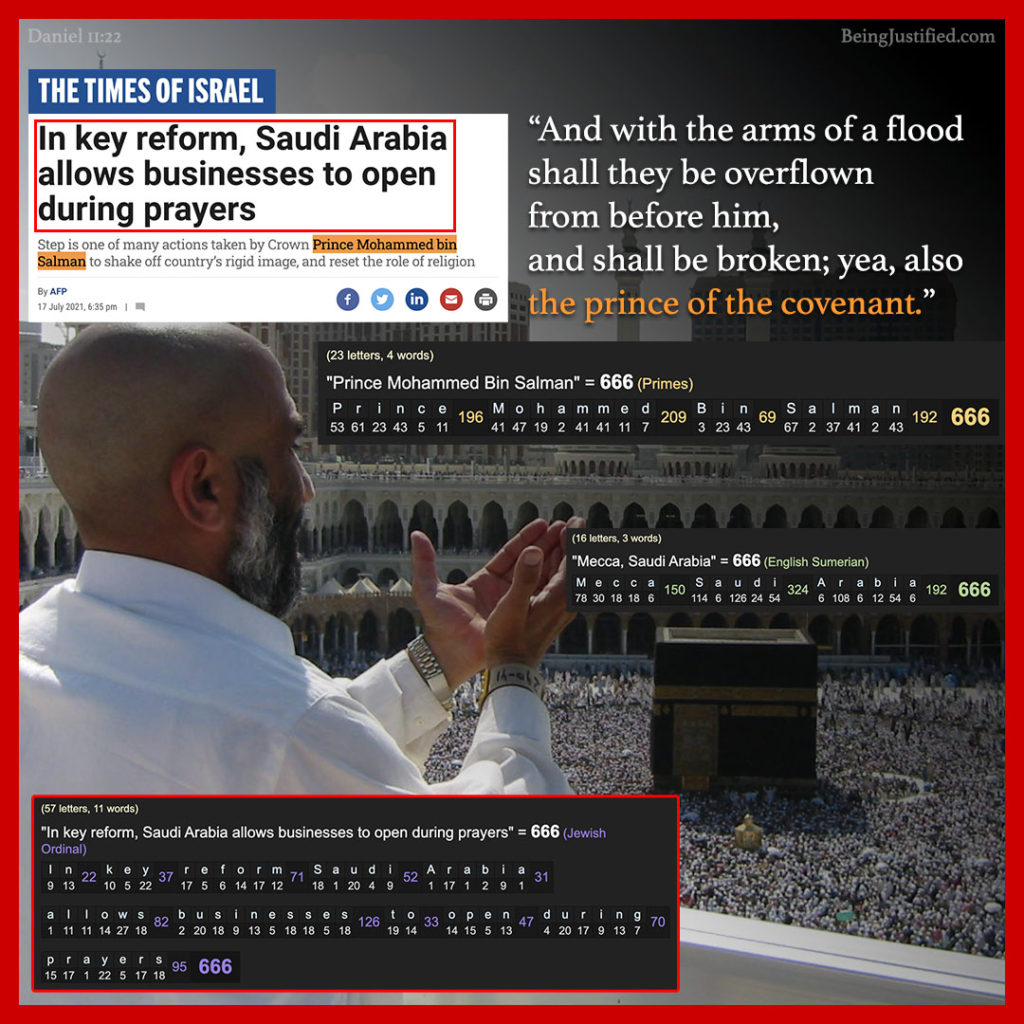
That he that will confirm the covenant with many which is looking to be the Abraham Accords is looking to be Prince Mohammed bin Salman of Saudi Arabia, the birthplace of Islam, because the number of his name is the number of the beast and the prince from the book of Daniel and the beast from the book of the Revelation are one-in-the-same person. He starts the final prophetic week for Israel which is approximately a 7 year span which is cut in 2, in the middle is when the beast is slain and the sacrifices and oblations in the third temple of Israel will cease and he (Judas Iscariot, the 8th king that ascends out of the bottomless pit) will desolate.
In this next development you will see how the prince is reforming Arabia to be less rigid with religion which recently the jesuit pope made mention of with people that are rigid in their religion causing bridges NOT to be built.
Back to the news:
Saudi Arabia has officially allowed businesses to remain open during the five daily Muslim prayers, a highly sensitive reform in a kingdom that is trying to shake off its austere image.
Since becoming de facto leader in 2017 on the pagan summer solstice, Crown Prince Mohammed bin Salman has introduced sweeping economic and social changes designed to reduce the kingdom’s dependence on oil and reset the role of religion.
“Stores and other commercial and economic activities will remain open throughout the working day and especially during [prayer] hours,” the Federation of Saudi Chambers said in a statement late Friday.
Officially, the decision is part of the fight against the coronavirus pandemic and aims to avoid “gatherings and long queues in front of closed stores during prayer hours.”
The move, which triggered confusion over whether it included the Islamic prayer times, was seen by some as a trial loosening of the rules.
While the government’s reforms have attracted little public criticism amid an accompanying crackdown on dissent, the issue remains highly sensitive in the kingdom where, until a few years ago, religious police elicited fear by enforcing such rules.
Saudi Arabia, home to the holiest Muslim sites, has long been associated with a rigid branch of Islam known as Wahhabism.
But Prince Mohammed has sought to position himself as a champion of “moderate” Islam, even as his international reputation took a hit from the 2018 murder of Saudi journalist Jamal Khashoggi inside the Saudi consulate in Istanbul.
In other news:
In first for Gulf, UAE opens embassy in Israel, hails trade ties.
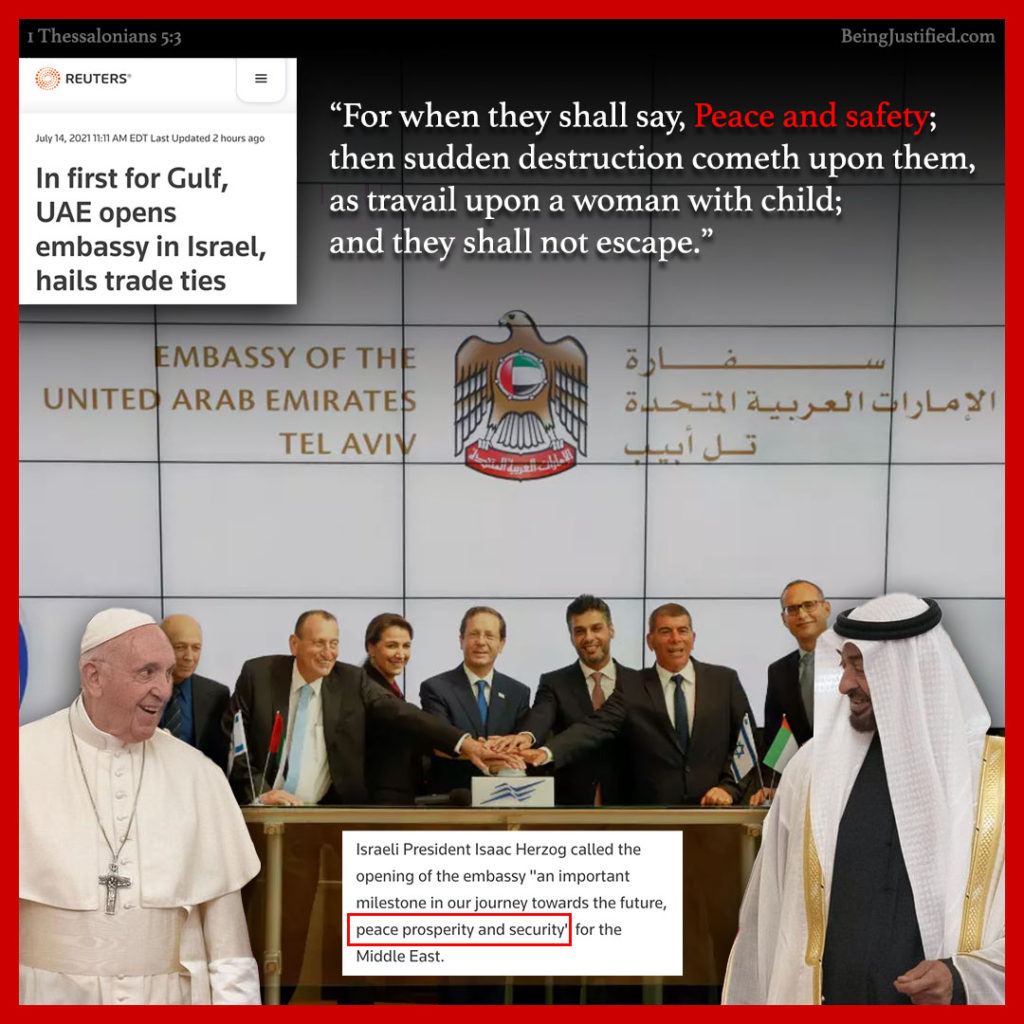
The United Arab Emirates on Wednesday become the first Gulf state to open an embassy in Israel, as its envoy hailed the trade and investment opportunities that closer ties would bring at a flag-raising ceremony also attended by Israel’s president.
Brought together by shared unease about Iran, the UAE and Bahrain normalised relations with Israel last year under the “Abraham Accords” crafted by the administration of then-U.S. President Donald Trump.
Sudan and Morocco have since also moved to establish ties with Israel.
The opening of the UAE embassy, which is situated in the Tel Aviv Stock Exchange, followed the inauguration of Israel’s embassy in the UAE last month.
The regional rapprochement has been deplored by the Palestinians, who want their demands for statehood free of Israeli occupation addressed first.
The UAE has said last year’s U.S.-brokered accords, which challenged a decades-old allegiance to Palestinian ambitions as a major driver of Arab policy, would ultimately benefit the Palestinians.
Lastly:
China say will step up involvement in Mideast mediation.
Jesuit Georgetown educated Chinese foreign minister says two-state solution represents the ‘only viable way to resolve the Palestinian question.’
Scripture to consider:
“I will also gather all nations, and will bring them down into the valley of Jehoshaphat, and will plead with them there for my people and for my heritage Israel, whom they have scattered among the nations, and parted my land.”
God’s land of Israel will be parted by what is looking to be the Palestine two-state solution. This is also a prerequisite for the prince’s Saudi Arabia to normalize with Israel via the Abraham Accords.
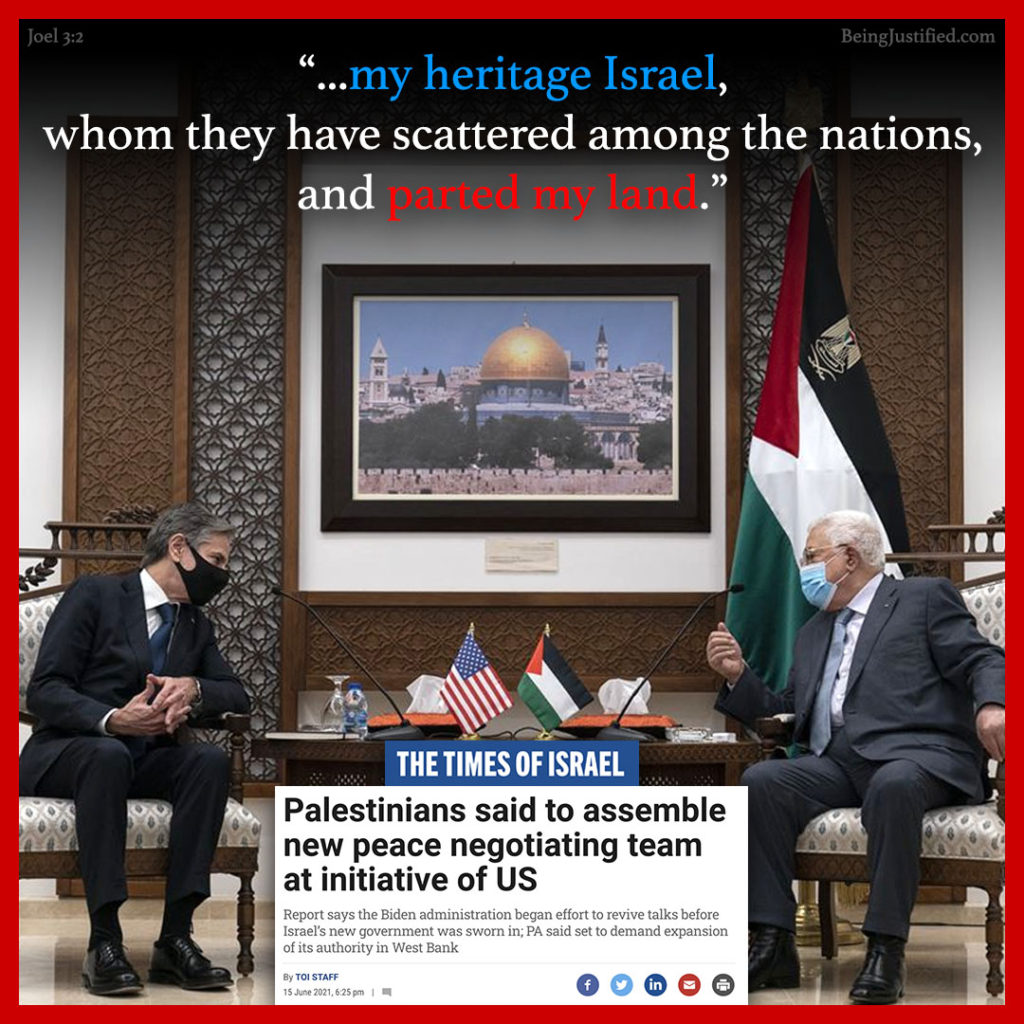
Back to the news:
China plans to step up its involvement in mediation efforts to resolve the Israeli-Palestinian conflict, Foreign Minister Wang Yi said on Thursday.
In the past, China had already attempted to work as a mediator between Israel and Palestinians, offering itself as an alternative to the United States.
Also at the conference, Palestinian Authority (PA) Social Affairs Minister Ahmed Majdalani said that the PA aimed to “implement a set of measures to build confidence between peoples, improve the humanitarian situation and open a real window for negotiations to end the conflict.”
China is one of five permanent members of the UN Security Council, where it frequently plays its veto card to block motions against its allies.
After voicing its support for the Gaza Strip-based terrorists of Hamas during the latest conflagration of the Israeli-Palestinian conflict earlier this year, China was accused of anti-Israeli bias.

